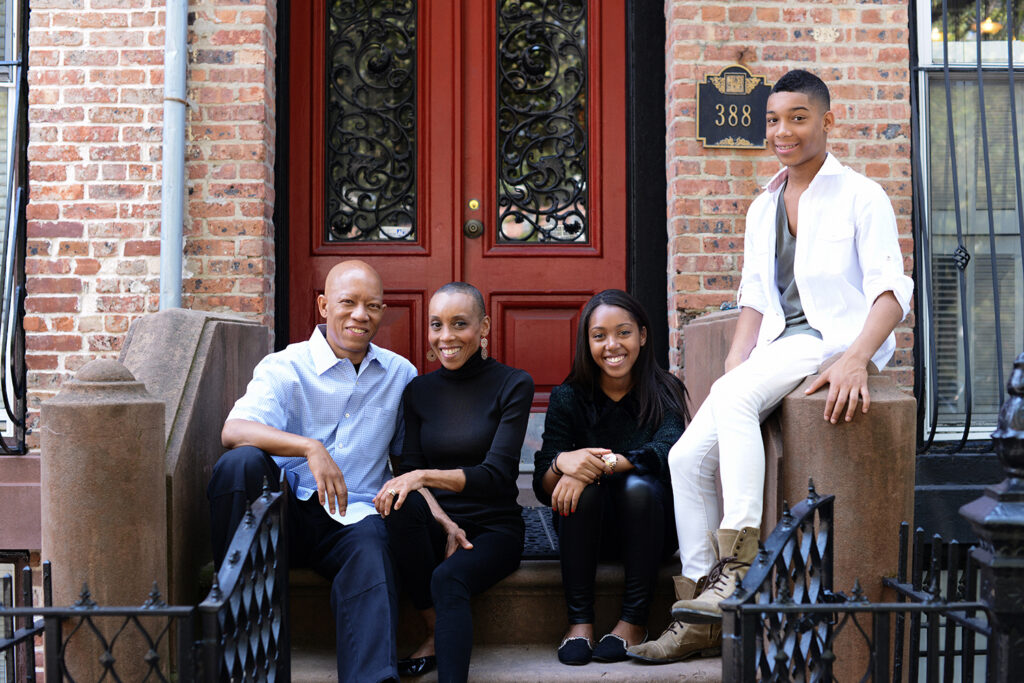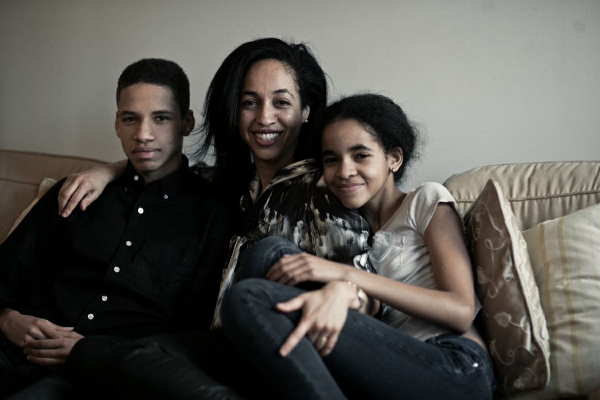Award-winning children’s author Andrea Davis Pinkney has turned stories into reality all of her life, whether it was about her career goals—wanting to be a journalist in New York City—or her personal life—having a family whose names were in alphabetical order. (That would be her husband, illustrator Brian Pinkney, and her two children college student Chloe, 18, and dancer Dobbin, 15.)
Andrea Davis Pinkney tells mater mea how one of the greatest stories of her life happened—changing the face of children’s literature one book at a time as a working mom.
Stories are incredibly powerful. They shape our understanding of history, culture, and ourselves.
It’s why readers of all ages clung to the viral hashtag #WeNeedDiverseBooks recently: Seeing an honest representation of someone who looks like you when the world reflects a different norm can be life affirming. It says that your story matters.
This is a fact that Andrea Davis Pinkney, an award-winning, bestselling children’s author and a vice president and executive editor at Scholastic, knows well. Storytelling’s transformative powers—and the lack of diversity in children’s books—are what brought her to the industry in the first place.
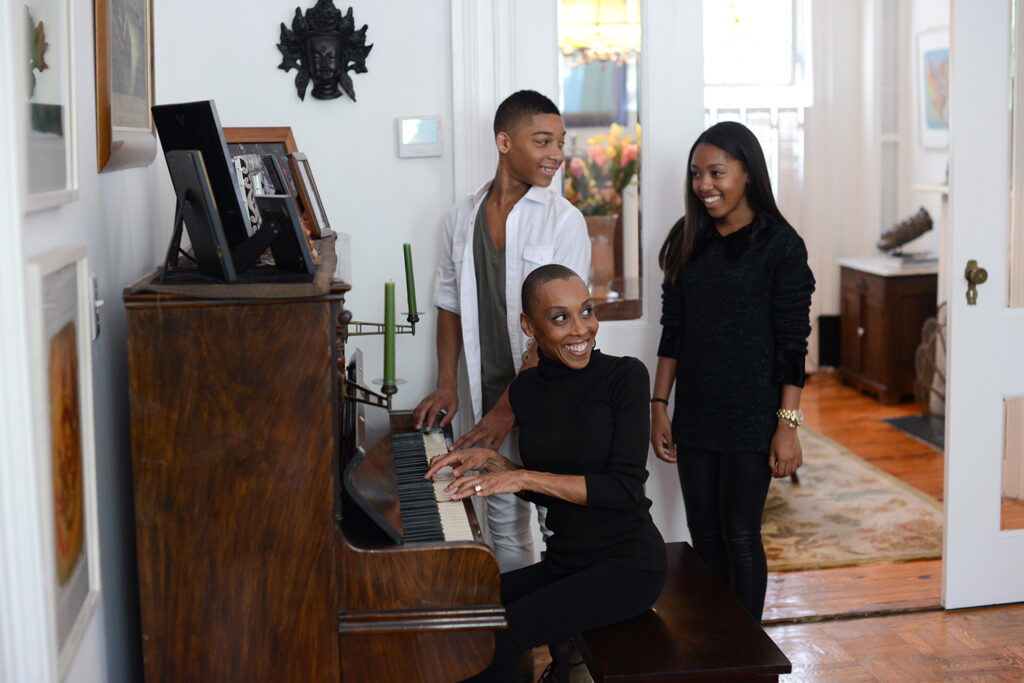
“I’m a mother of a daughter and a son,” Davis Pinkney says. “And I tell them all the time, ‘The negative things you read about African Americans are a lie. They’re not true about you, they’re not true about our people.’ I write for young readers because I want to set the record straight.”
Like many great stories, Davis Pinkney’s book publishing career started “by accident.”
“I wanted to be a journalist,” she recalls. “I wanted to live in New York City, and work for a magazine.”
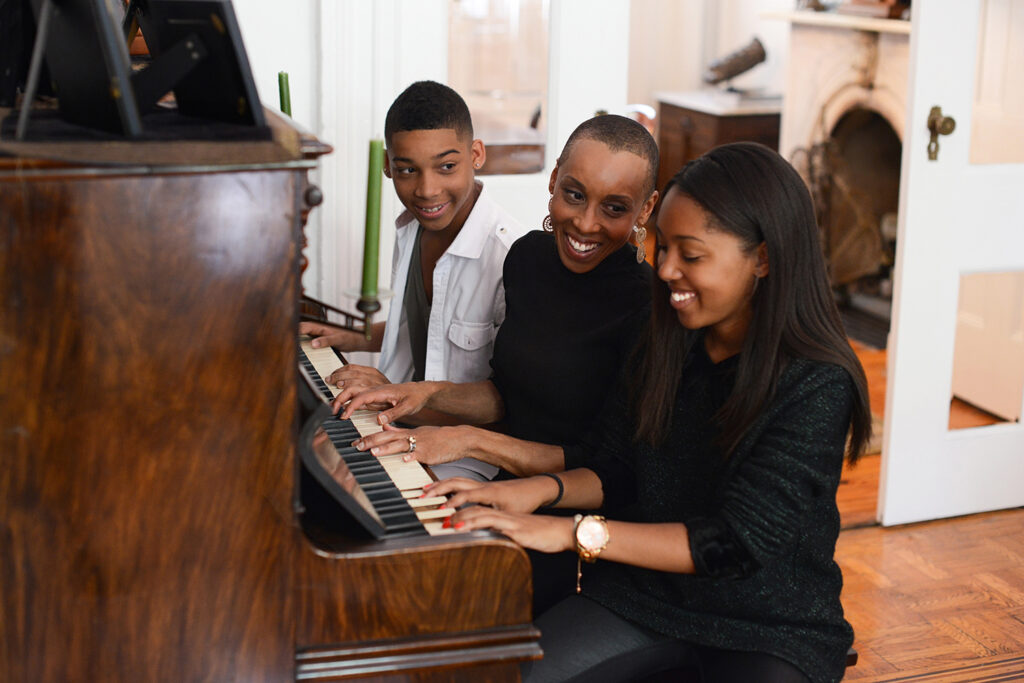
Andrea Davis Pinkney began working towards that dream after graduating high school. She went to Syracuse University, where she majored in journalism, and began working as an editor at Mechanix Illustrated magazine shortly after graduating. It was there that she met her husband of 23 years, illustrator Brian Pinkney, who was then her across-the-hall neighbor. (Brian worked in Field & Stream magazine’s art department.)
“From the time I was 14 years old, I wanted to marry a man who loves me, and have a daughter who I would name Chloe. I wanted a boy child, too―Chloe’s little brother,” she recalls with a laugh. “And that dream came true for me.” (Another childhood dream came true, too: having a family with names in alphabetical order. Her son Dobbin completes the family.)

After Mechanix, Davis Pinkney went on to write for a number of other publications, including The New York Times. She eventually joined Essence magazine as its senior editor in the mid-eighties, managing the publication’s Contemporary Living section. It’s there in Essence’s offices that Davis Pinkney’s story began to change course.
“One of my charges was to put together an annual December gift guide, which included children’s books,” Davis Pinkney says. “I was calling publishers, saying, ‘Send me your best African-American books for kids.’ I wasn’t a mother at this point, but I kept thinking, There needs to be a popular series for teenage girls that’s like the Baby-Sitters Club. There need to be more great books that feature African-American boys. And where are the really engaging picturebook biographies that celebrate the awesome achievements of Black people?
“The children’s book publishers I was calling didn’t have these books on their lists. I was charged to fill Essence magazine’s pages with a variety of genres and types of books that featured black characters, but the books weren’t out there.”

That experience stayed with Davis Pinkney.
She began thinking of ideas for children’s books with Black characters—both fictional and historical—that covered topics she had wanted to read when she was a kid. Her husband, who had become a children’s book illustrator after leaving Field & Stream, was a regular sounding board.
“I was saying to him, ‘Call your editor at this publishing company, here’s an idea for them,’” she says now. “He finally just said to me one day, ‘Why don’t you do that? You should write the books you want to see on bookshelves!’”

As luck would have it, Andrea Davis Pinkney had a chance meeting with the publisher of Simon & Schuster at a conference. She immediately started pitching her ideas.
“I was so passionate about seeing these books get into the hands of young readers, I must have sounded like an evangelist,” Davis Pinkney says with a laugh. “The publisher invited me to lunch. When we met, she offered me a job that day!”

Despite the professional and cultural transition—from Essence’s largely Black masthead to the mostly-white world of book publishing—Andrea Davis Pinkney found her footing.
She worked as an editor at Simon & Schuster for four years, where she acquired and edited a number of African-American children’s literature. From there she went to Disney Publishing Worldwide, where she started Jump at the Sun, an imprint focused on African-American children’s books. (“Jump at the sun” was a phrase Zora Neale-Hurston’s mother used to say to the author and anthropologist when she was a child, encouraging her daughter to reach for great heights.)
The Jump at the Sun imprint, which still exists today, was the first of its kind.
”It was a vibrant and robust list with many notable authors,” Davis Pinkney says. “We launched a lot of new talent.”
One of those talents was Deborah Gregory, the author of The Cheetah Girls book series, which would later become a recurring Disney Channel original movie series.

“That came out of my Essence experience,” Andrea Davis Pinkney explains. “Sitting in a room with my Disney colleagues saying, ‘All right, who are we not reaching?’ ‘We are not reaching African-American girls ages 8-14.’ I called up Deborah Gregory, and gave her the bare bones of the idea, and she said, ‘I’m on it.’”
Along with shepherding these stories into the hands of grateful young readers and their parents, Davis Pinkney was creating them as well, writing the manuscripts while her husband provided the illustrations.
Their first book, a biography of Alvin Ailey’s life, was published in 1995. The duo have collaborated on books ever since, including Seven Candles for Kwanzaa (again, addressing a gap in the market) and the Coretta Scott King award-winning Hand in Hand: Ten Black Men Who Changed America, inspired by their son.
As a solo author, Andrea Davis Pinkney has written many notable novels for young people, including her latest, The Red Pencil, which was named a New York Times Notable Book, and is also an NAACP Image Award nominee.
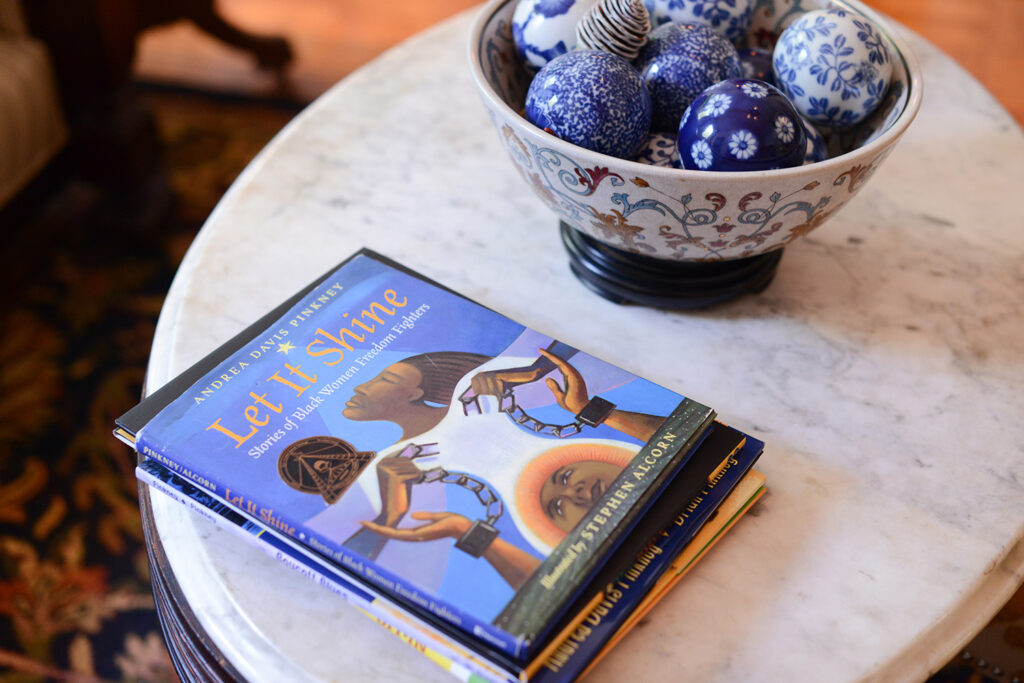
Now editing notable talent at Scholastic—and with 30 books of her own lining thousands of bookshelves around the world—Andrea Davis Pinkney remains committed to telling stories that will speak to children who look like her own son and daughter. She’s always in search of stories that will create what she calls “book magic.”
“To me book magic is when a kid is so enthralled with what he or she is reading that when something interrupts, they don’t want to leave that book,” she explains. “Seeing that magic happen when the child is reading a book that I’ve either published or written is a powerful thing. Because every child―even the most reluctant one―is a reader. You just have to find them the right book.”

Q&A
YOU’VE HAD SOME BIG EXECUTIVE ROLES AT MAJOR PUBLISHERS. BEFORE YOU JOINED SCHOLASTIC AS A VICE PRESIDENT, YOU WERE A GROUP PUBLISHER AT HOUGHTON MIFFLIN. HAVE YOU EVER HAD TO PUT YOUR CAREER OVER BEING A MOTHER?
I love bookmaking and my job and my work; it’s very satisfying to me. But I love motherhood more.
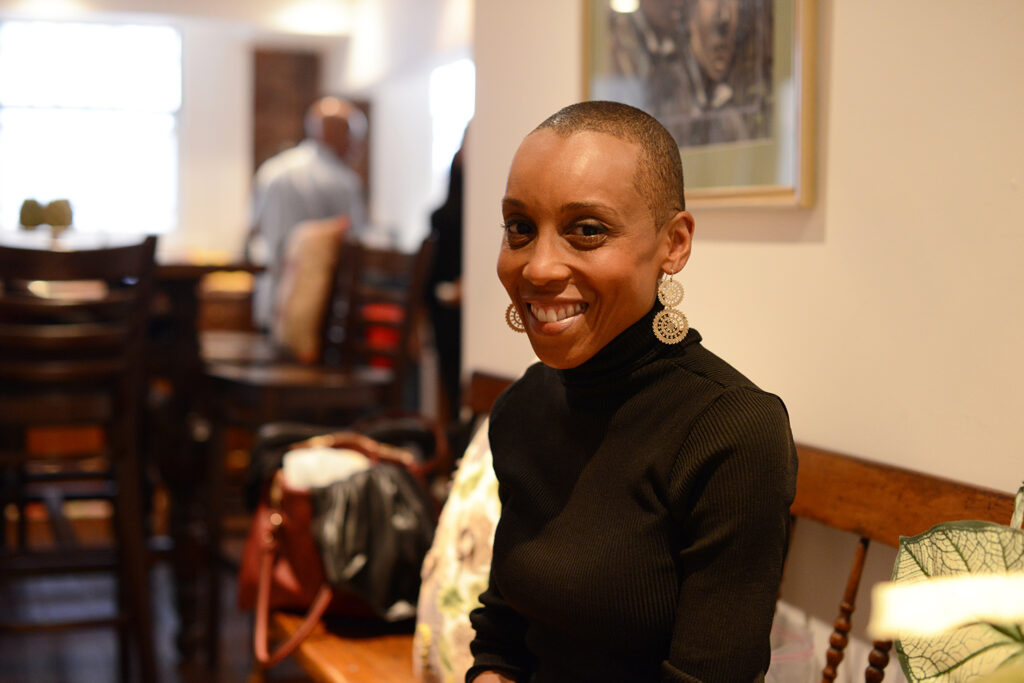
For several years I was commuting between New York, where I live, and Boston [Houghton Mifflin’s headquarters]. I got down to a routine. But the commute was the reason why I ended up leaving, and it was a very hard decision. There were many school events that I would miss, and my husband would go, and I thought, I’m missing so much. These moments will never happen again. I want to enjoy them.
I left Houghton in 2005 and started at Scholastic—it’s a great place to work [and] it’s close to home, and it’s a company that feels like home. Publishing diverse books is a primary purpose at Scholastic.

FILL IN THE BLANK: I LOVE BEING A MOM MOST WHEN …?
I love being a mom most when I get a text from both children, separately, saying “I love you” on the same day.
BEING A MOM IS THE HARDEST WHEN …?
Being a mom is the hardest when I have not had enough sleep.

WHAT IS YOUR PARENTING PHILOSOPHY AND HOW DO YOU EXECUTE IT?
My parenting philosophy is that my children [Chloe, 18, and Dobbin, 15] are separate, unique individuals who are not me. So I allow them to be themselves. We may have areas where we don’t agree, of course. [But] part of my philosophy is active listening. Let me listen, let me not react.
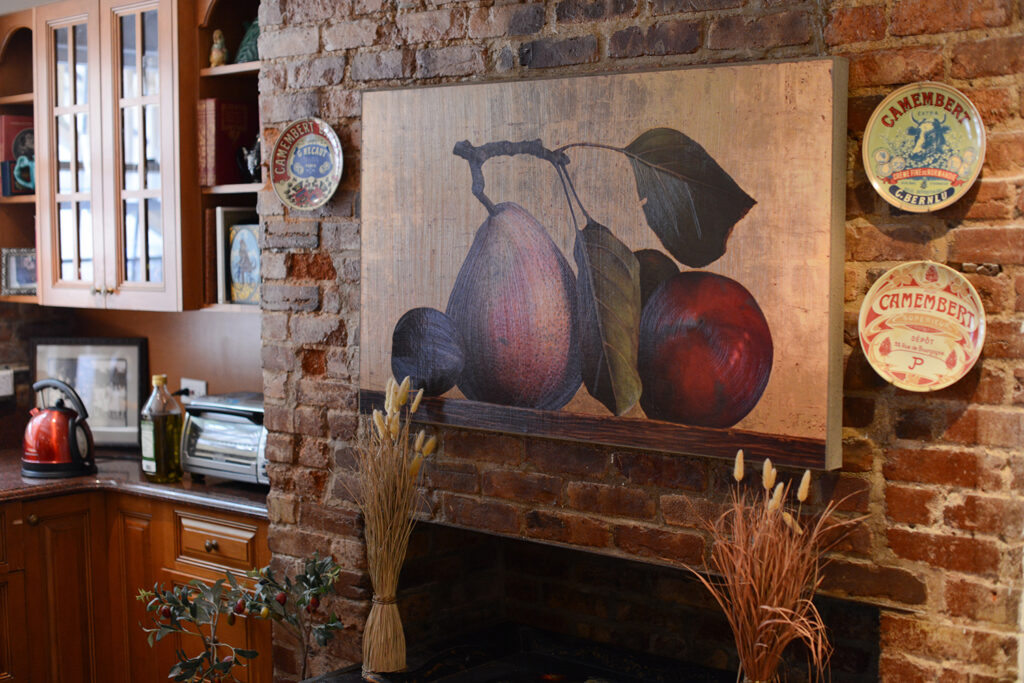
WHAT PERSPECTIVE DO YOU HOPE TO IMPART ON YOUR KIDS THROUGH YOUR WORK?
My children know that work can be something that is very satisfying and fun. I don’t equate work with drudgery or negativity. They see the great joy Brian and I have in doing what we do. So they know why I’m always at the computer, why I’m writing and editing day and night. I come home from work and I’m feeling energized and engaged and happy. So they’ve grown up seeing that a career can be uplifting.
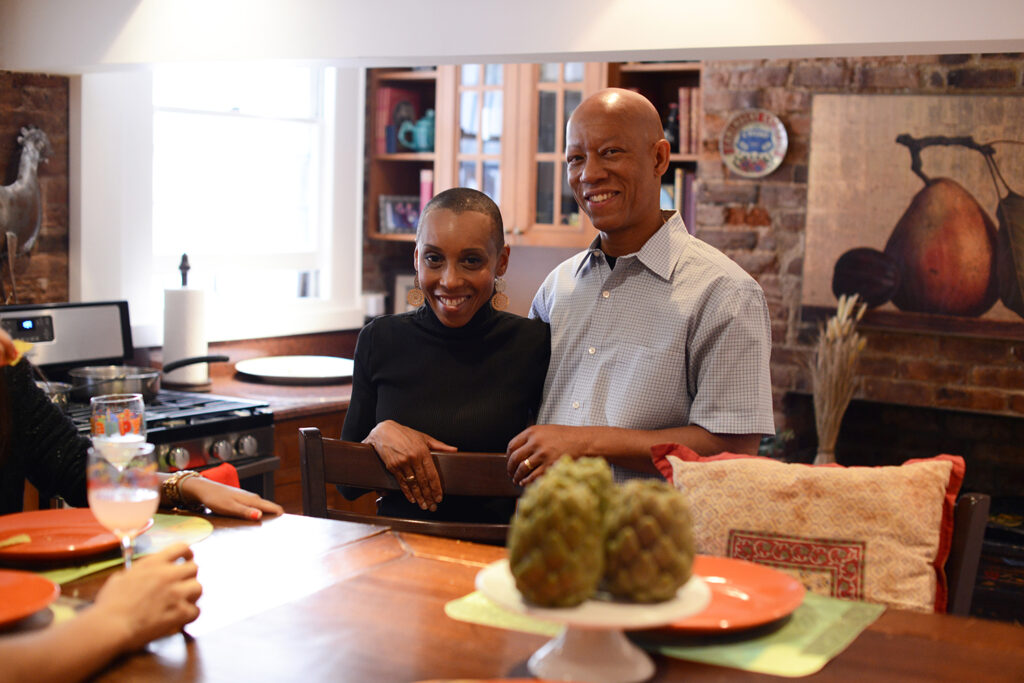
HOW DO YOU BRING BALANCE INTO YOUR LIFE?
One thing that is very helpful as a mother is pausing. At every moment, even in joyful times, I remind myself to slow down so that I can really experience what’s going on.
I need quiet time at least three times a day. And the kids know that now. They don’t ask, they don’t question it. I say, “I’m going to bring down my chi now.” That means, “I’m going into our bedroom for a little bit of quiet.” I do that in the morning, and I usually do that every day around 3:00 p.m. in my office to get centered, and it is imperative when I walk in the door at night because I am tired. I use a philosophy, which the kids have heard me talk about, “H.A.L.T.”
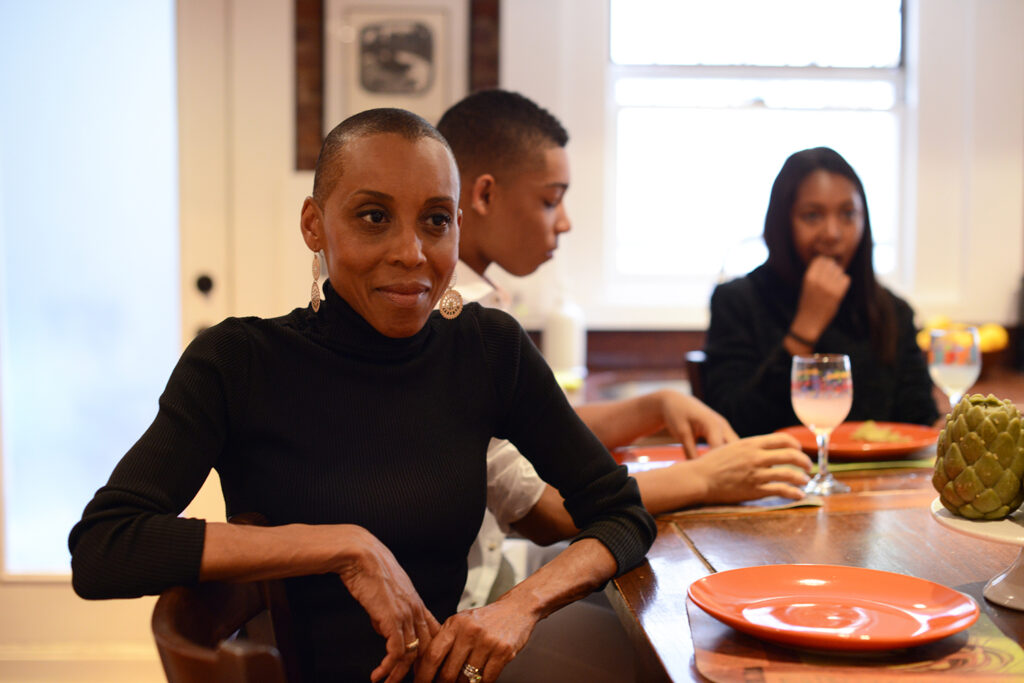
H.A.L.T.?
Hungry-Angry-Lonely-Tired. I know when I’m in H.A.L.T. I have to address those four concerns before I can interact with them.
My kids know to wait before they ask me something like, “Can I go over to my friend’s house?” They know I first need to take some deep breaths to come out of H.A.L.T. Then I emerge with the same letters, which are now Honesty-Acceptance-Love-Tolerance.
As my husband points out, you always have to have your root structure down. What that means is you’ve got to stay grounded and focused on what is important. That three times a day of quiet has revolutionized everything.

HOW HAS BECOMING A MOM CHANGED YOUR LIFE?
Your lens changes, your view of the world changes, your perspective changes. I could never have imagined that I would have such great kids.
I think that one of the biggest ways in which motherhood has changed me personally is that life is so much more exciting and multifaceted. Through their interests, my daughter and son have exposed me to things I never would have experienced otherwise.
It’s also changed me as an author and publisher of children’s books. As someone who does writing for young people, I’ve got two in my home who can really tell me like it is in terms of books that I’m working on.

HOW WOULD YOU DESCRIBE YOUR CHILDREN’S PERSONALITIES?
They’re both very mature, loving, intelligent, fun kids. And they’re very creative. My daughter, who is in college, wants to be a fashion editor for a magazine, and my son is a dancer, who was a principal performer with the Alvin Ailey American Dance Theatre Teen Extension, and now performs with Broadway Dance Center’s AIM traveling company. Chloe and Dobbin get along, and they look out for each other.

YOU ORIGINALLY BEGAN YOUR CAREER IN MAGAZINES. WHAT WAS THE TRANSITION LIKE FROM MAGAZINE EDITING TO BOOK PUBLISHING?
It was quite a change, a little bit of a cultural transition. In the magazine world, everything moves very quickly. You’ve got to fill that magazine every month, you’re dealing with writers and super-tight deadlines constantly, and when the article is due, it’s due.
In book publishing, things move a little bit slower. You’re writing and editing books that are going to stand the test of time, that are going to be embraced by parents, teachers, librarians, the children themselves. So there’s a longer composition process involved.
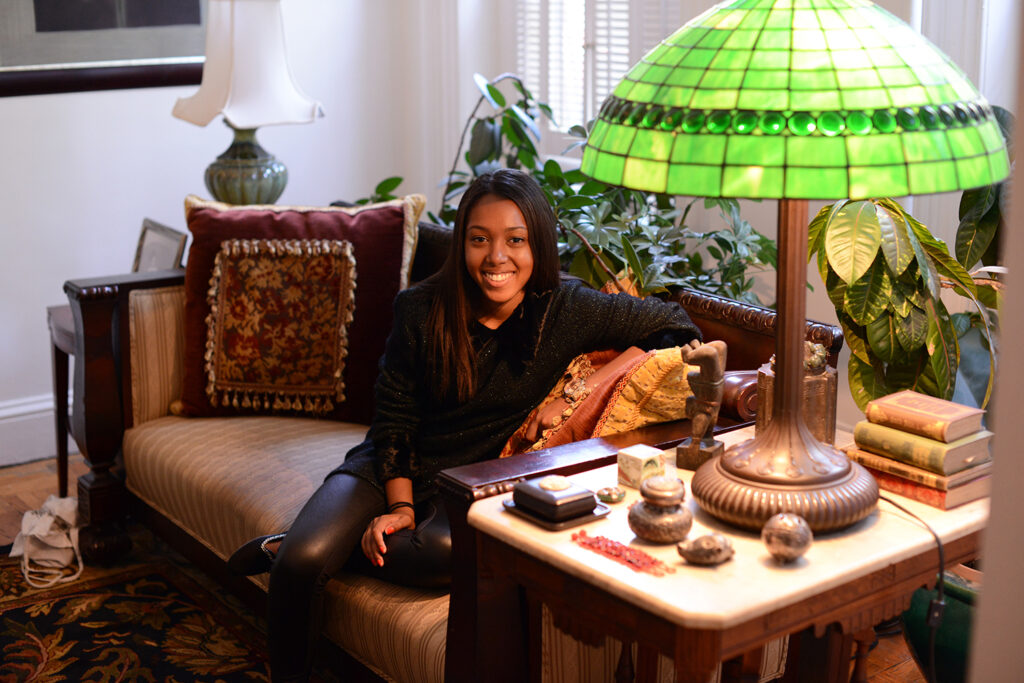
YOU’VE NOTED IN PAST INTERVIEWS THAT YOU WERE ALSO JUMPING FROM ESSENCE MAGAZINE, WHICH WE KNOW IS PREDOMINANTLY BLACK, AND INTO THE LARGELY WHITE WORLD OF BOOK PUBLISHING. WHAT WAS THAT LIKE?
I think it took some getting used to. At Essence, I was working in a place where everybody looked like me, and then I went to a place where very few looked like me. At Essence I could talk to my colleagues about doing an article on Zora Neale-Hurston or an event in African-American history or my upcoming Kwanzaa party or my hair. Those were not the nature of the conversations I was having in book publishing: I often had to explain Kwanzaa, I had to qualify who Zora Neale-Hurston was. Or I wouldn’t have to qualify, but I could see the blank look on a person’s face when I talked about these things that were part of my everyday experience.
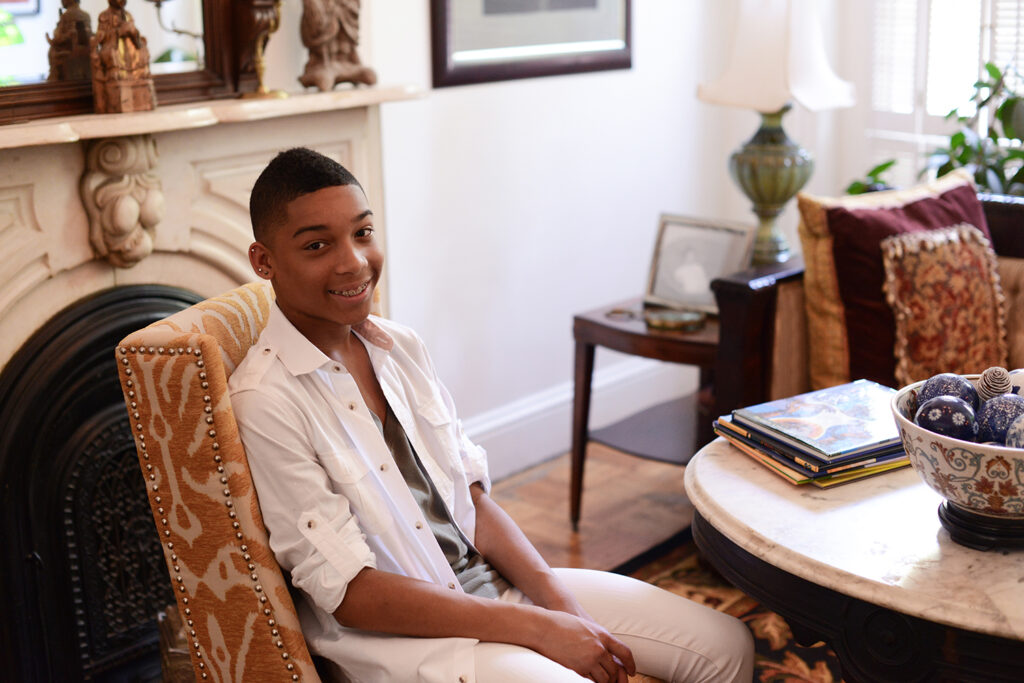
WHY DO YOU THINK IT’S SO IMPORTANT TO BRING MORE DIVERSITY TO BOOKS?
We as a people have a tradition of seeking out reading as something to aspire to because of having a history in which we weren’t permitted to read or write. This has carried over through generations—reading is important. Our people like to read. We want to read. We see its value, and we embrace it.

It’s why I write and edit such a variety of books—to foster a love of literature, literacy, and to present positive images. This is vital for all children, but especially for African-American children. We must be bearers of positivity about ourselves.
As an author, I visit classrooms all over the nation and the world. Even in the most remote towns in America, there are students of all ethnicities and cultural backgrounds sitting at those desks. These kids are the thought-leaders and influencers of tomorrow. The books they read today will affect the direction our world will take in the future. If these children don’t see diversity now, they won’t internalize how vital it is for our global society when they’re adults.
